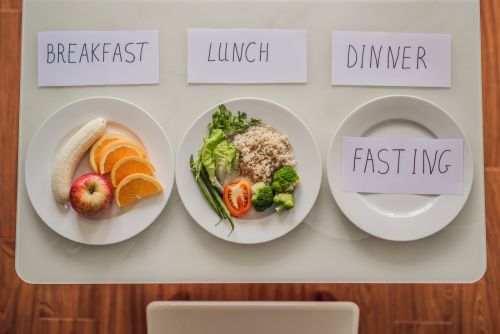Intermittent fasting for teens has sparked curiosity among many parents and health-conscious individuals, especially as this dietary trend gains popularity across all age groups. With approximately 16% of American teens aged 12-19 classified as obese, parents are increasingly exploring different methods to promote healthier lifestyles for their children. But is intermittent fasting safe and effective for growing bodies that require adequate nutrition for development?
As studies indicate, adolescence is a critical period for growth, with teens requiring between 2,000 to 3,200 calories per day depending on their activity levels. However, intermittent fasting, when balanced with healthy and nutritious meals, generally does not negatively impact growth. Before considering intermittent fasting for your teen, it’s important to understand how to implement it properly to ensure they receive the necessary nutrients and calories for their development.
Contents
- 1 Understanding Intermittent Fasting for Teens
- 2 Can Teens Do Intermittent Fasting Safely?
- 3 Possible Health Problems Teens Might Face on Intermittent Fasting
- 4 Essential Tips for Intermittent Fasting for Teens: A Parent’s Guide
- 5 Recommended Intermittent Fasting Type for Teens to Start With
- 6 Is Fasting Good for Kids?
- 7 Is It Safe for a 12-Year-Old to Fast?
- 8 Should Children Fast? Expert Opinions
- 9 Is Fasting Safe for a 16-Year-Old?
- 10 FREE CHEAT SHEET!
Understanding Intermittent Fasting for Teens
Intermittent fasting for teens is a rising trend that has piqued the interest of many. However, it’s important to fully grasp what this diet entails before considering it for adolescents.
- Intermittent fasting involves alternating periods of eating and fasting, typically with set time windows for each.
- Teens are in a critical stage of growth, requiring consistent and adequate nutrition like healthy low-carb food to support physical development, cognitive growth, and hormonal balance.
- Restricting food during fasting periods may lead to nutritional deficiencies, which doesn’t negatively affect a teen’s overall growth and health.
- Energy levels could be impacted by fasting, which is particularly concerning for teens who need sustained energy for academic and physical activities.
- Parental guidance and healthcare consultation are essential to ensure that any fasting regimen is safe and appropriate for a teen’s specific needs.
- Monitoring is crucial to observe any negative effects or signs of inadequate nutrition during fasting periods.
Can Teens Do Intermittent Fasting Safely?
Teens are at a crucial stage in their development and have higher nutritional needs compared to adults. For instance, a teenage boy typically requires between 2,800 to 3,200 calories per day, while a teenage girl needs about 2,200 to 2,400 calories daily. Intermittent fasting might make it challenging for them to meet these needs, which are essential for growth, brain development, and maintaining energy levels.
Additionally, fasting can affect a teen’s ability to maintain stable blood sugar levels, potentially leading to fatigue, irritability, or difficulty concentrating, especially during school hours. There is also a risk of developing unhealthy eating habits or a negative relationship with food if fasting is not managed correctly.
If your teen is considering intermittent fasting, it’s crucial to consult with a healthcare professional first. They can assess whether this approach suits your teen’s individual health needs, growth patterns, and lifestyle.
In summary, while intermittent fasting may be safe for some teens under professional supervision, it’s important to carefully evaluate whether it meets your child’s unique nutritional needs and developmental stage.
| BMI Category | BMI Range | Safety of Intermittent Fasting |
| Underweight | Below 18.5 | Not Recommended: Teens with a low BMI may already struggle with adequate nutrition, and intermittent fasting could exacerbate nutritional deficiencies and impede growth. Consult a healthcare provider before considering fasting. |
| Normal Weight | 18.5 – 24.9 | Conditional: For teens with a healthy BMI, intermittent fasting might be considered under strict medical supervision. Ensuring that all nutritional needs are met during eating periods is crucial. Monitor closely for any negative effects. |
| Overweight | 25 – 29.9 | Conditional: Intermittent fasting may be more feasible for overweight teens, but it should still be done under medical supervision to avoid potential negative impacts on growth and overall health. Emphasis should be on balanced nutrition. |
| Obese | 30 or higher | Not Recommended: While weight management might be a concern, intermittent fasting is not typically advised without professional oversight. Focus should be on sustainable, balanced diet changes and physical activity, with guidance from a healthcare professional. |
Possible Health Problems Teens Might Face on Intermittent Fasting
Teens who engage in intermittent fasting may face several potential health issues, including:
- Nutritional Deficiencies: Intermittent fasting can limit the time available to consume all the essential nutrients needed for growth and development, leading to possible deficiencies in vitamins and minerals crucial for physical and cognitive health.
- Growth Impairments: Adequate caloric and nutritional intake is essential for proper growth. Restricting calorie intake through fasting and avoiding junk food may impact physical growth and overall development.
- Energy Levels: Sustained energy is vital for school, sports, and daily activities. Fasting can lead to low energy levels, fatigue, and difficulty concentrating, which might affect academic performance and daily functioning.
- Mood Swings: Irregular eating patterns can contribute to mood swings, irritability, and increased stress, potentially affecting mental and emotional well-being.
- Unhealthy Eating Habits: Fasting might lead to unhealthy relationships with food, such as binge eating during non-fasting periods or an obsession with food and body image.
- Disrupted Sleep: Hunger and changes in eating patterns can disrupt sleep quality and duration, which is critical for overall health and development.
- Social and Lifestyle Impact: Fasting may interfere with social activities that involve food, such as family meals and social gatherings, impacting a teen’s social life and overall well-being.
Monitoring and consulting with a healthcare professional is crucial to ensure that intermittent fasting, if pursued, is managed safely and appropriately for a teen’s health and development. to mitigate these risks and ensure that any dietary changes support a teen’s health and development.
Essential Tips for Intermittent Fasting for Teens: A Parent’s Guide

Here are some tips to consider if you’re thinking about intermittent fasting for your teen:
- Consult a Healthcare Professional: Before starting any fasting regimen, talk to a healthcare provider to ensure it’s safe and appropriate for your teen’s age, health, and developmental needs.
- Ensure Nutritional Balance: Make sure that during eating periods, your teen consumes a well-balanced diet rich in essential nutrients, including proteins, healthy fats, carbohydrates, vitamins, and minerals to support their growth and development.
- Monitor Caloric Intake: Ensure your teen meets their daily caloric needs. For instance, a 16-year-old typically requires between 2,200 to 3,200 calories per day, depending on their activity level.
- Focus on Hydration: Encourage your teen to drink plenty of water throughout the fasting period to stay hydrated and help manage hunger.
- Gradual Introduction: If intermittent fasting is introduced, do so gradually to allow your teen’s body to adjust. Start with shorter fasting periods and increase them slowly if needed.
- Observe for Side Effects: Keep an eye out for any adverse effects, such as fatigue, irritability, or difficulty concentrating. If any negative symptoms arise, reconsider or adjust the fasting regimen.
- Promote a Healthy Relationship with Food: Ensure that fasting does not lead to unhealthy eating habits or an obsession with food. Emphasize a balanced approach and encourage a positive relationship with eating.
- Support and Communication: Maintain open communication with your teen about their fasting experience. Offer support and be available to discuss any concerns or changes they might be experiencing.
Recommended Intermittent Fasting Type for Teens to Start With
For teens considering intermittent fasting, a gentle approach is generally recommended to ensure it’s manageable and safe. Here’s a commonly recommended type to start with:
12/12 Method
- Description: This method involves fasting for 12 hours and eating within a 12-hour window each day. For example, if your teen eats breakfast at 8 AM, they would finish their last meal by 8 PM.
- Benefits: The 12/12 method is less restrictive and easier for teens to maintain. It provides a balanced approach to intermittent fasting while still allowing a regular eating schedule and sufficient time for daily activities and social interactions.
- Considerations: Ensure that the 12-hour eating window includes well-rounded, nutritious meals to meet their daily caloric and nutritional needs. This method helps ease into intermittent fasting without significantly impacting their growth and development.
Always consult with a healthcare professional before starting any fasting regimen to ensure it’s appropriate for your teen’s individual health and developmental needs.
Is Fasting Good for Kids?
Fasting isn’t generally a good idea for kids, especially considering how much their bodies need consistent nourishment to grow properly. Your child needs a steady intake of calories and nutrients every day to support their physical growth, brain development, and energy levels. For instance, kids between the ages of 6 and 12 typically need around 1,600 to 2,200 calories daily, depending on how active they are.
If they start fasting, they could miss out on important nutrients, which could affect their health and even lead to unhealthy eating habits. So, it’s usually best to avoid fasting for kids and focus on balanced, regular meals instead.
Note: Always consult with a healthcare provider before starting any fasting regimen to ensure it is safe and appropriate based on your teen’s health, habits, and nutritional needs.
Is It Safe for a 12-Year-Old to Fast?
Fasting is generally not recommended for a 12-year-old due to their high nutritional needs for growth and development. At this age, children require a balanced intake of calories and nutrients to support their rapid physical and cognitive growth. For example, a 12-year-old typically needs around 1,800 to 2,200 calories per day, depending on their activity level.
While fasting itself does not inherently lead to nutritional deficiencies, it can make it challenging to meet the required intake of essential nutrients within a limited eating window. This can potentially impact growth, energy levels, and overall health. Additionally, fasting could affect concentration, mood, and academic performance, and may contribute to the development of unhealthy eating habits if not managed properly.
If you are considering any dietary changes for your child, consult with a healthcare professional to ensure that their nutritional needs are adequately met and that any approach is safe and suitable for their age and health status.
Should Children Fast? Expert Opinions

The topic of whether children should fast is important for many parents and experts. Here’s what expert opinions generally suggest.
- Children are in crucial stages of physical and cognitive development, requiring consistent and adequate nutrition to support their growth.
- A typical 10-year-old needs around 1,600 to 2,000 calories per day, depending on their activity level, to ensure proper growth and energy.
- While fasting itself does not inherently cause deficiencies, it can make it challenging to meet the required intake of essential nutrients within a limited eating window. This could potentially impact growth, cognitive function, and overall health.
- Fasting may also affect a child’s energy levels, concentration, and mood, which can influence academic performance and social interactions.
- Health organizations, such as the American Academy of Pediatrics, generally recommend against fasting for children, advocating instead for balanced, regular meals to meet their developmental needs.
Is Fasting Safe for a 16-Year-Old?
Fasting for a 16-year-old requires careful consideration due to their ongoing physical and developmental needs. At this age, teens typically need between 2,200 to 3,200 calories per day, depending on their activity level and gender, to support growth, energy, and cognitive function. While intermittent fasting might be manageable for some older teens, it can pose risks if not carefully monitored.
Potential issues include inadequate nutrient intake, which could impact growth and overall health, as well as effects on energy levels and concentration. It is essential for any fasting regimen to be supervised by a healthcare professional to ensure that nutritional needs are met and to prevent adverse effects. Consulting with a doctor can help tailor a safe approach that aligns with the teen’s health requirements and lifestyle.
Conclusion
In conclusion, intermittent fasting for teens is a complex topic that requires careful consideration. While it may offer benefits, it’s essential to weigh these against the unique nutritional needs of growing bodies. Always consult a healthcare professional before your teen starts any fasting regimen to ensure it’s safe and appropriate for their individual health needs.
